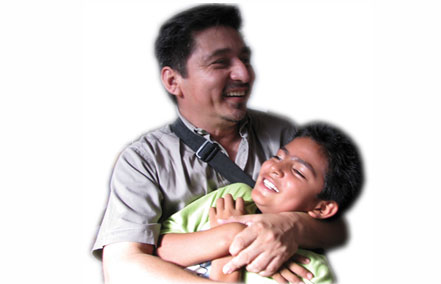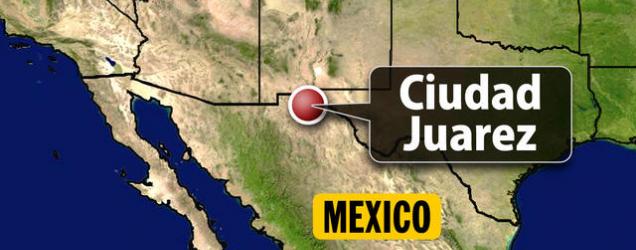
Juan Jose Hernandez’s professional trajectory has been anything but conventional. From the priesthood he turned to psychiatry and from there to becoming El Salvador’s chief of police following a brutal civil conflict. Yet, says Hernandez, throughout these years, he was not meandering aimlessly.
Serene though with a contagious energy, Hernandez has traveled wide in search of self-understanding so that he can enrich the lives of those he serves. His story is as compelling as it is inspirational to those who come into contact with him.
“The seminary, psychiatry, the police, they all have a common purpose and that is to help others,” said Hernandez, currently the program officer for the Regional Youth Alliance USAID-SICA project, which is implemented in El Salvador, Guatemala and Honduras. The goal of USAID-SICA is to provide constructive alternatives to a life on the street for youth-at-risk and former gang members. “I learned from the different fields: from the seminary, I learned empathy, from psychiatry, I learned science and in my years with the police I learned the significance of action.”
At 13, Hernandez’s mother took him to see the bishop after he informed her of his desire to become a priest. The bishop was none other than the late Monsignor Oscar Romero, a committed human rights advocate whose outspokenness led to his assassination in 1980. Though Hernandez did not join the seminary there and then, Romero told him if he still wanted to become a priest after his high school graduation, he could do so then. “He, Romero, told me, he would wait for me,” Hernandez recalled. It was to be their first and last meeting, “but, [Romero] remains an inspiration for me and many others.”
Over the next few years, Hernandez led the life of a typical teenager with few thoughts of the seminary. However, after graduating high school at 17, Hernandez entered the seminary. Five years later and two years shy of his ordination, Hernandez abruptly changed course, and moved to Italy to study psychiatry. “I would have been a priest at 24-years old. I was afraid to fail,” Hernandez noted.
Despite the raging conflict in El Salvador, Hernandez returned to his country in 1988, and having had significant training in clinical psychiatry, he took a post at a psychiatric hospital. When the conflict ended, he re-directed the course of his professional life by joining the national civilian police force. “I felt I could be most useful there, because after the war there was a need to build the peace, it was my way of supporting the movement toward peace, public security. It was essential,” said Hernandez who eventually became chief of police.
Spending nearly a decade with the civilian police gave Hernandez insight into the needs of the population and an awareness of those most likely to fall victim to crime. From the civilian police, Hernandez joined the UN Mission in El Salvador which later transferred him to their Guatemala office. In Guatemala, he joined a small USAID-funded program, the Youth Alliance Program, aimed at marginalized communities and youth-at-risk, the precursor of today’s Regional Youth Challenge USAID-SICA project. Implemented by Creative Associates International on behalf of USAID, the youth project has mobilized communities and businesses in its efforts to rehabilitate former gang members and to provide safe spaces where marginalized youth spend free time constructively.
“Last year, 7 youth with whom we worked were killed by other gang members,” said Hernandez. “You feel angry when they die, they’re gone.” Hernandez’s natural calm and good humor faded momentarily in anguish. “But, at the same time you take some comfort in knowing that person had shifted his life in the right direction, was on the good side.”
Hernandez has been deeply influenced by psychiatrist and holocaust survivor Victor Frankl who taught that, no matter what the situation, people have the freedom to choose the course that will alter their circumstances allowing them to transcend horrendous suffering. This human capacity to overcome dehumanizing circumstances by becoming spiritually and mentally whole again is at the core of Frankl’s teaching and guides Hernandez’s work with young people.
Despite the seriousness of his life’s work, Hernandez concedes, “I am happy with my history.”
“I believe sincerely that we are here to help others. Neither riches nor genius is needed” he says, “only a heart and a desire to help others. Creative Associates and USAID have given me the opportunity to help those who really need help in their communities, especially youth-at-risk.”
